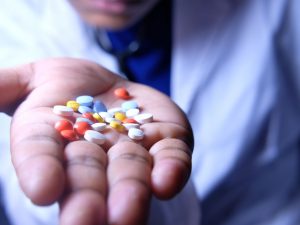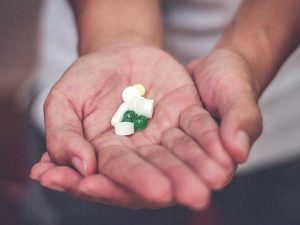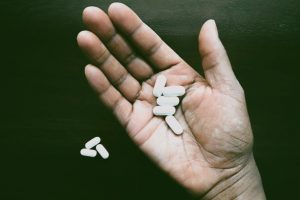How Long Does It Take For Antidepressants to Kick In?
October 18, 2021

Antidepressants are medications usually prescribed if you have depression. Sometimes, it’s also used to treat anxiety. Two of the most commonly prescribed antidepressants are known in the medical field as SSRIs (Selective Serotonin Reuptake Inhibitors) and SNRIs (Serotonin and Norepinephrine Reuptake Inhibitors).
These drugs work to restore the balance of serotonin in the brain. Serotonin is a molecule in the brain responsible for putting you in a good mood. One of the causes of depression is a low level of serotonin, causing you to feel down. Antidepressants balance out the amount of serotonin present in your brain, helping to stabilize your mood.
Read on to find out how much you need to wait before getting relief from your antidepressant medications.
Antidepressants are designed to be slow acting
 Unlike other medications, antidepressants do not produce noticeable effects in a matter of hours or days. The way these drugs work is they first accumulate in your brain. Then, once there is enough, that’s when they will kick in.
Unlike other medications, antidepressants do not produce noticeable effects in a matter of hours or days. The way these drugs work is they first accumulate in your brain. Then, once there is enough, that’s when they will kick in.
In most cases, antidepressants take effect within a week or two. But for some people, it can take up to a month to six weeks before they feel relief from depression.
Within one to two weeks after you take an antidepressant, you should be able to feel some improvements. You should be in a good mood again, your appetite should be coming back, and you will be able to enjoy your hobbies. Keep in mind, though, that you may still have depressive symptoms at this time. This is only the beginning of your condition improving.
Your body may not respond well to the first antidepressant prescribed to you
 Different people respond to antidepressants in different ways. For some, the results are quick, while for others, it takes much longer for them to feel the first wave of improvements. And in some people, antidepressants do not work at all.
Different people respond to antidepressants in different ways. For some, the results are quick, while for others, it takes much longer for them to feel the first wave of improvements. And in some people, antidepressants do not work at all.
Why is this so? Let’s go back to how antidepressants work.
Most antidepressants’ mode of action is to increase the levels of serotonin in the brain. You can think of serotonin as a “feel good molecule” — the more of it in the brain, the better your mood and emotions will be. But for serotonin to produce pleasant feelings, it must be outside the brain cells, not inside.
That’s where SSRIs come in. From the name, these drugs inhibit, or stop, the reuptake of serotonin into brain cells. In other words, SSRIs prevent serotonin molecules from getting back inside the brain cells. With more of them outside, they can help transmit signals responsible for putting you in a good mood.
Specifically, SSRIs target a transporter molecule that shuttles serotonin back inside your brain cells. It stops the action of that transporter; in turn, more serotonin is available outside the cells.
Additionally, SSRIs also target portions of your DNA that code for the transporter. This process takes time. As a result, there is less of the transporter molecule present in your brain, leaving more serotonin outside brain cells. Consequently, you would feel better.
The reason that SSRIs do not work the same way for everyone is that each person has a different genetic makeup. Small differences in people’s DNA can make the action of SSRIs slower, faster, or non-existent.
Also, not everyone metabolizes antidepressants the same way. For some people, their bodies process the drug faster, so they feel its effects earlier than others. The effects of the drugs are also affected by factors like age, sex, nutritional status, and hormonal changes. If patients have liver disease, this can significantly affect how they respond to antidepressants.
How long will you wait before getting the maximum effect of antidepressants?
In most cases, antidepressant effects peak within two to three months from when you first took the drug. At this time, you will have the fewest symptoms of depression, if not none of them. You should be able to live normally again.
The first month is crucial, though. If you don’t get any appreciable effects within a month to six weeks of your first intake, tell your doctor right away. He may have to increase your dosage, switch to another antidepressant, or give you an additional antidepressant. He may also recommend other medications or behavioral therapies.
How long do you need to be on antidepressant medication?
 Antidepressants are not just for short term relief of depressive symptoms. They are also helpful as maintenance medications to prevent future depressive episodes. Otherwise, your depression has a much higher chance of returning.
Antidepressants are not just for short term relief of depressive symptoms. They are also helpful as maintenance medications to prevent future depressive episodes. Otherwise, your depression has a much higher chance of returning.
Studies have shown that without treatment, major depressive episodes can last for about six months. Also, they are shown to have a 50% chance of recurring in six months and an 85% chance of recurring within ten years.
Thus, your doctor may advise you to continue taking antidepressants for six months to a year after your depressive symptoms have died down. If your case is more severe, you may need to continue medication for up to three years. In the worst cases, the medication has to be continued indefinitely.
Is there such a thing as a fast-acting antidepressant?
There is a drug called esketamine that produces antidepressant effects rather quickly. It is capable of improving even the most severe depressive symptoms within a few hours to a day.
Esketamine acts on a different brain chemical called glutamate. Glutamate is a major brain molecule that also plays a huge role in controlling your mood. Balancing glutamate levels is much faster than the action of SSRIs.
Take note, though, that esketamine is reserved for the most severe cases of depression and those cases that are resistant to every other antidepressant available. Esketamine is a last option, and it should only be taken under the supervision of a psychiatrist.
How would you know if you need to take antidepressants?
Not everyone who has depression needs antidepressants. The best way to know if you need them is to talk to your doctor. Discussing your situation with a trusted, competent, and compassionate medical or mental health professional is the best way to get help.